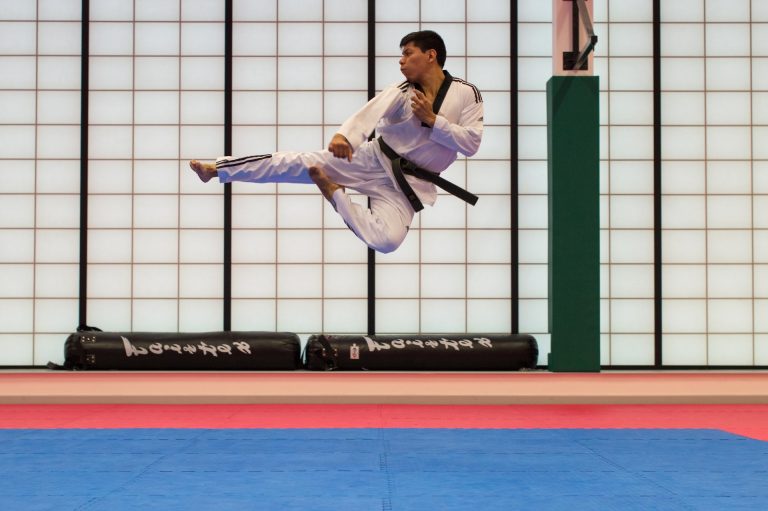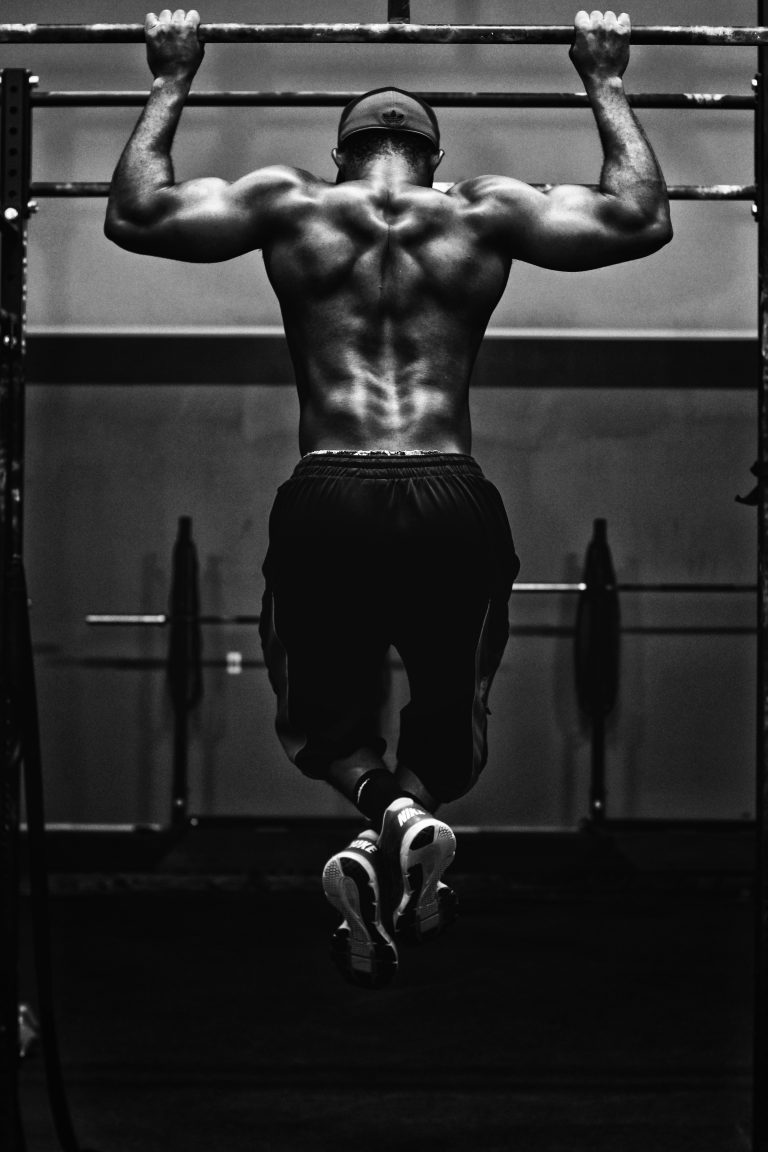How to Do Good at Karate: Tips, Techniques, and Strategies
When it comes to martial arts, karate is one of the most popular styles. Whether you’re a beginner or have been practicing for years, improving your skills and technique can be challenging. But fear not – with a few tips, techniques, and strategies, you can achieve great things in karate.
In this post, we’ll cover the basics of karate, the importance of regular practice, the techniques and strategies that will help you improve your skills, and how to prepare for a competition. By the end of this article, you’ll have a better understanding of how to do good at karate.
Karate Basics
Karate is a Japanese martial art that primarily focuses on strikes, punches, kicks, and blocks. It was developed in Okinawa and later spread to Japan and the rest of the world. Karate is practiced by people of all ages and is known for its effectiveness as a self-defense technique.
There are many different styles of karate, including Shotokan, Goju-ryu, Wado-ryu, Shito-ryu, and Kyokushin. Each style has its own strengths and weaknesses, but they all share a common goal – to improve the practitioner’s physical and mental abilities.
The Importance of Regular Practice
One of the most important things you can do if you want to do good at karate is to practice regularly. Regular practice is essential for improving your technique, strength, endurance, and flexibility. You should aim to practice at least three times a week, although more is better.
During your practice sessions, you should focus on the basic techniques such as punches, kicks, and blocks. You should also work on your footwork, timing, and breathing. As you become more comfortable with the basics, you can move on to more advanced techniques like throws, joint locks, and submissions.
Techniques and Strategies
Here are some techniques and strategies that will help you improve your skills and do good at karate:
Warm-Up Properly
Before you start practicing, it’s important to do a proper warm-up. A good warm-up routine should include dynamic stretching exercises to loosen up your muscles and increase your heart rate. You should also do some light cardio exercises like jumping jacks, jogging, or skipping.
Focus on Your Breathing
Breathing is an essential part of karate, and you should focus on your breathing during your practice sessions. Breathing deeply and rhythmically can help you relax and focus your energy. You should also try to synchronize your breathing with your movements.
Master the Basics
Mastering the fundamental techniques like punches, kicks, and blocks is essential if you want to improve your skills. You should focus on your form, balance, and technique. As you improve, you can gradually increase the speed and power of your techniques.
Improve Your Footwork
Footwork is an essential part of karate, and you should work on your footwork during your practice sessions. You should focus on your stance, pivoting, and movement. Good footwork can help you move around your opponent and set up your strikes.
Practice Timing and Distance
Timing and distance are critical in karate, and you should practice them regularly. You should develop a sense of timing and learn how to read your opponent’s movements. You should also practice maintaining the correct distance from your opponent.
Use Visualization Techniques
Visualization techniques can be helpful in improving your skills in karate. You should visualize yourself performing the techniques correctly and imagine yourself succeeding in your training and competition. This can help you stay motivated and focused.
Preparing for a Competition
If you want to compete in karate, you should prepare yourself mentally and physically. Here are some tips:
Mental Preparation
Before the competition, you should mentally prepare yourself by visualizing success and developing a winning mindset. You should also focus on the task at hand and not get distracted by your opponents or surroundings.
Physical Preparation
Physical preparation involves improving your technique, strength, endurance, and flexibility. You should also develop a pre-competition warm-up routine and focus on your nutrition and hydration.
Competition Strategy
During the competition, you should have a strategy that takes into account your strengths and weaknesses as well as those of your opponent. You should focus on your strengths and avoid your weaknesses.
Frequently Asked Questions: How to Do Good at Karate
Karate is a martial art that requires skill and dedication to master. If you’re wondering how to do good at karate, you’re not alone. Here are some of the most frequently asked questions about karate and some tips to help you improve your technique.
Q: What are the basic principles of karate?
Karate is based on five basic principles:
- Correct breathing
- Creative tension
- Correct form
- Complete focus
- Spiritual development
Correct breathing is essential in karate, as it helps to increase your power and concentration. Creative tension involves contracting your muscles to generate maximum force, and correct form means maintaining a good stance and posture. Complete focus means paying attention to every detail of your technique, while spiritual development involves developing a deeper understanding of yourself and your surroundings.
Q: How can I improve my flexibility?
Flexibility is crucial in karate, as it allows you to execute kicks and other techniques more effectively. To improve your flexibility, you should incorporate stretching into your daily routine. Focus on stretching your hamstrings, quadriceps, hip flexors, and calves. Yoga is also an excellent way to improve your flexibility and balance.
Q: What are some common mistakes beginners make in karate?
Some common mistakes beginners make in karate include:
- Not maintaining proper form
- Failing to commit to each technique
- Overusing certain techniques
- Not developing good technique before trying advanced moves
- Underestimating the importance of footwork and body position
To avoid these mistakes, focus on developing good technique and form before attempting advanced moves. Commit fully to each technique and avoid overusing certain moves. Practice footwork and body position to develop a strong foundation for more complex techniques.
Q: How can I improve my strength for karate?
Strength is essential in karate, as it allows you to generate more power in your techniques. To improve your strength, you should incorporate resistance training into your routine. Focus on exercises that target your upper body, core, and legs, such as push-ups, pull-ups, squats, and lunges. Plyometric training, such as jump training, can also help to improve your explosive power.
Q: How can I improve my speed and reaction time?
Speed and reaction time are crucial in karate, as they allow you to execute techniques quickly and effectively. To improve your speed and reaction time, you should incorporate agility drills into your routine. Practice drills that involve quick movements and changes of direction, such as ladder drills, cone drills, and shuttle runs. Shadowboxing and sparring can also help to improve your reaction time.
Q: What role does mental focus play in karate?
Mental focus is essential in karate, as it allows you to stay calm and centered in the face of adversity. To improve your mental focus, you should practice meditation and mindfulness. Visualize yourself executing techniques with perfect form and imagine yourself succeeding in competitions. This can help to reduce stress and anxiety and improve your mental clarity.
In conclusion, karate requires hard work and dedication to master. By focusing on the basic principles of karate, improving your flexibility, avoiding common mistakes, improving your strength, speed, and reaction time, and developing your mental focus, you can improve your karate skills and excel in competitions.
How to Do Good at Karate: A Comprehensive Guide
Introduction
Karate is one of the most popular martial arts in the world. It is a discipline that combines physical fitness, mental focus, and spiritual growth. Many people start practicing karate to improve their physical health, learn to defend themselves, and gain confidence. But if you want to become a skilled karate athlete and achieve your goals, you need to put in the effort and work hard. This guide will provide you with tips and techniques to help you do good at karate.
Step 1: Find a Good Karate Dojo
The first step to doing good at karate is finding a good dojo. A dojo is a training hall where karate lessons are held. You want to find a dojo that has experienced teachers who are knowledgeable about karate and can guide you through the training process. Look for a dojo that has a positive and welcoming environment, and a community of students who support and motivate each other.
Step 2: Develop Your Physical Fitness
Karate requires a high level of physical fitness. To do good at karate, you need to have strength, flexibility, speed, endurance, and agility. You should aim to develop your physical fitness through a combination of cardiovascular exercise, strength training, and flexibility training. Running, cycling, or swimming can improve your cardiovascular health. Weight lifting or bodyweight exercises can increase your strength. Stretching or yoga can improve your flexibility.
Step 3: Master the Basic Techniques
Karate is based on a set of basic techniques, such as punches, kicks, blocks, and stances. To do good at karate, you need to master these techniques and be able to perform them with precision and power. You should practice these techniques repeatedly until they become second nature. Ask your teacher to give you feedback on your technique and correct your mistakes.
Step 4: Practice Kata
Kata is a series of pre-arranged movements that simulate a fight against imaginary opponents. Kata is an essential part of karate training because it helps you develop your technique, balance, speed, and power. You should practice kata regularly as a part of your training routine. Start with the simplest kata and progress to more complex ones as you improve your skills.
Step 5: Spar with Partners
Sparring is a practice fight between two karate athletes. Sparring is an important part of karate training because it helps you develop your reflexes, timing, strategy, and confidence. You should spar with partners who have similar skill levels and wear protective gear, such as gloves, shin guards, and mouth guards. Start with light sparring and progress to full-contact sparring as you become more proficient.
Step 6: Participate in Tournaments
Tournaments are competitive events where karate athletes can showcase their skills and compete against other athletes. Participating in tournaments can help you improve your technique, gain confidence, and learn from other athletes. You should participate in tournaments that are appropriate for your skill level and age group.
Step 7: Embrace the Karate Philosophy
Karate is not just a physical discipline but also a spiritual one. It is based on the principles of respect, discipline, perseverance, and humility. To do good at karate, you need to embrace the karate philosophy and live it in your daily life. You should show respect to your teacher, fellow students, and opponents. You should maintain discipline, both in your training and in your personal life. You should persevere through challenges and setbacks. And you should always be humble and respectful, no matter how skilled you become.
Conclusion
Karate is an excellent way to improve your physical fitness, learn self-defense, and develop your character. To do good at karate, you need to find a good dojo, develop your physical fitness, master the basic techniques, practice kata, spar with partners, participate in tournaments, and embrace the karate philosophy. With dedication, hard work, and perseverance, you can become a skilled karate athlete and achieve your goals.
Inhaltsverzeichnis






